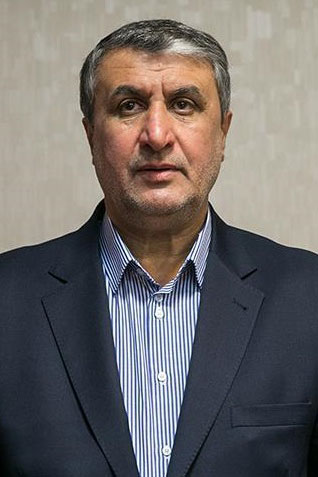Iran Nuclear Talks: Iran Can Build Nuclear Bomb, But Does Not Intend to Do So
Iran says it is technically capable of producing a nuclear bomb. But the country does not intend to do so, the semi-official Fars news agency quoted the head of Iran's Atomic Energy Agency, Mohammed Eslami.
 The head of Iran's Atomic Energy Agency, Mohammed Eslami, claims Iran could build nuclear weapons, but does not plan to do so. / Picture: © Wikimedia Commons / Tasnim News Agency, CC BY 4.0
The head of Iran's Atomic Energy Agency, Mohammed Eslami, claims Iran could build nuclear weapons, but does not plan to do so. / Picture: © Wikimedia Commons / Tasnim News Agency, CC BY 4.0
Mohammed Eslami's comments echo similar statements made by top Iranian officials. In addition to being rare, such public statements by top officials will likely increase concerns over Iran's nuclear program.
The country has advanced its nuclear activities since the JCPOA deal limiting them failed. Iran then began gradually violating its commitments. The agreement is intended to prevent Iran from obtaining nuclear weapons. Iran denies any such goal.
The West has been trying to save the 2015 international nuclear agreement for some time. This has been on the back burner since 2018 when then-U.S. President Donald Trump unilaterally revoked it as well as reimposed U.S. sanctions on Iran.
Iran also announced its readiness for a resumption of nuclear negotiations. According to ORF, Iranian Foreign Ministry spokesman Nasser Kanaani, Iran has received "important messages in recent days" and there is "indeed a possibility for new negotiations soon." Iran wants an end to the nuclear dispute and a comprehensive agreement, he said. According to ORF, the spokesman did not say when or where the new negotiations would take place. Chief nuclear negotiator Ali Bagheri also tweeted that Iran is ready to bring negotiations to a conclusion in the short term.
We work closely with our JCPOA partners, in particular the Coordinator, to give another chance to the U.S. to demonstrate good faith & act responsibly. As Iran, we stand ready to conclude the negotiations in a short order, should the other side be ready to do the same. 2/2
— علی باقریکنی (@Bagheri_Kani) July 31, 2022
West and IAEA concerned
The International Atomic Energy Agency (IAEA) and Western powers say they are unconvinced that Iran's nuclear program is for peaceful purposes. Iran's program is advancing at such a pace that it cannot be reversed, Western officials have warned.
According to Rafael Grossi, head of the IAEA, Iran could acquire such a quantity in a matter of weeks. When the nuclear deal was intact, the U.S. estimated the breakout time to be about a year.
Mr. Grossi, however, said Iran did not possess enough material to manufacture a nuclear weapon. The IAEA reported in May that Iran had 43.1kg of 60% enriched uranium. Nuclear weapons require about 25kg of uranium enriched to 90%, according to the BBC.
Since the Russian invasion of Ukraine, both Russia's foreign minister and President Putin have visited Tehran. As Vindobona.org reported, it is mainly about stalling tactics and evading sanctions. Iran has only since tightened its stalling strategy and sees the war in Ukraine as an advantage for its interests in the nuclear talks and an ally in Russia.
Talks in Vienna have been on and off for months, and rare indirect negotiations ended without agreement between the U.S. and Iran. At a time when Iran and world powers are once again at odds over the resumption of the 2015 agreement, Iran claims it has the technical know-how to develop a bomb. Only time will tell whether this is part of a stalling tactic.



